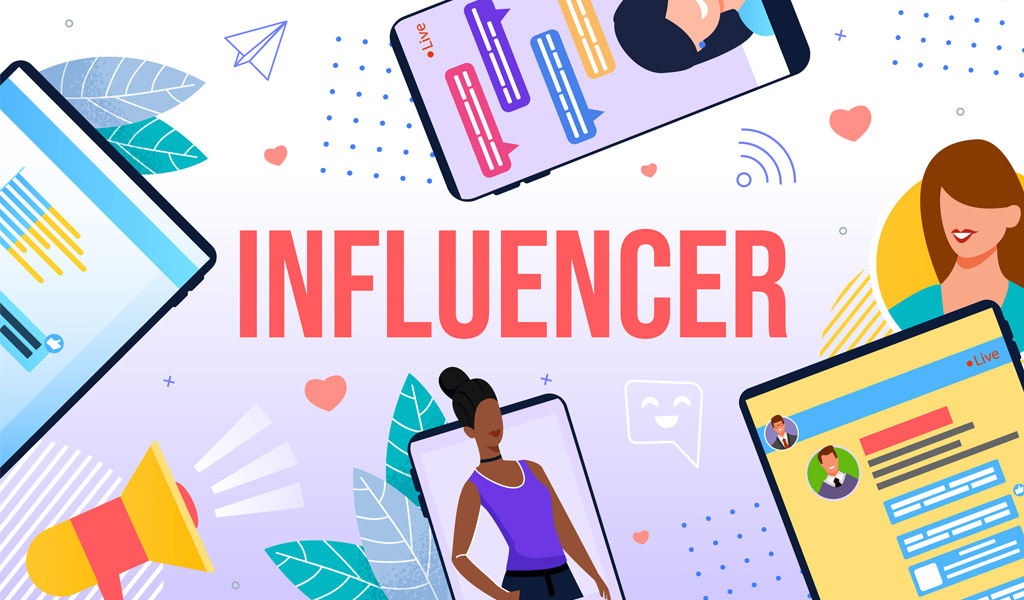Influencer Marketing 101: How to Partner with Influencers for Brand Growth
In today's digital age, influencer marketing has emerged as a powerful strategy for brands looking to expand their reach, build trust, and drive growth. By leveraging the influence of popular personalities on social media, businesses can connect with larger audiences in authentic and engaging ways. This comprehensive guide will walk you through the essentials of influencer marketing, from understanding its benefits to finding the right influencers and crafting successful partnerships.
Why Influencer Marketing?
Influencer marketing involves partnering with individuals who have a significant and engaged following on social media. Here are some reasons why influencer marketing is effective:
- Authenticity and Trust: Influencers have built trust with their followers, making their endorsements more credible than traditional advertising.
- Reach and Engagement: Influencers can help brands reach large, highly engaged audiences that are often difficult to target through other marketing channels.
- Content Creation: Collaborating with influencers generates high-quality content that can be repurposed across various marketing platforms.
- SEO and Traffic: Influencer partnerships can improve your website's SEO through backlinks and increase traffic from social media platforms.
Steps to Successful Influencer Marketing
1. Define Your Goals
Start by outlining what you aim to achieve with your influencer marketing campaign. Common goals include:
- Increasing brand awareness
- Driving traffic to your website
- Boosting sales and conversions
- Building brand loyalty and trust
- Growing your social media following
Clear objectives will guide your influencer selection and campaign strategy.
2. Understand Your Audience
Knowing your target audience is crucial for selecting the right influencers. Consider the following:
- Demographics: Age, gender, location, and income level
- Interests and Hobbies: What topics or activities do they engage with?
- Online Behavior: Which social media platforms do they use?
This information will help you find influencers who align with your brand and resonate with your audience.
3. Identify the Right Influencers
Not all influencers are created equal. Consider these factors when selecting influencers:
- Relevance: The influencer's content should align with your brand values and industry.
- Reach: The size of the influencer's following on the platforms that matter to you.
- Engagement: The level of interaction (likes, comments, shares) on the influencer's posts.
- Authenticity: The influencer's authenticity and the trust they have built with their audience.
- Content Quality: The quality of the content they produce and how well it aligns with your brand's aesthetics.
Tools like BuzzSumo, Traackr, and HypeAuditor can help you identify and evaluate potential influencers.
4. Build Relationships
Successful influencer marketing is built on genuine relationships. Approach influencers thoughtfully:
- Personalized Outreach: Craft personalized messages that highlight why you want to work with them and how the partnership can be mutually beneficial.
- Engage with Their Content: Follow the influencer, like their posts, and leave meaningful comments to show genuine interest in their work.
- Offer Value: Make it clear how partnering with your brand will benefit the influencer, whether through compensation, free products, or exposure.
5. Craft a Clear Proposal
When you approach an influencer, have a clear proposal ready. Include:
- Campaign Objectives: What you hope to achieve with the partnership.
- Deliverables: Specific details about the content you want the influencer to create (e.g., number of posts, type of content).
- Timeline: Key dates for content creation, posting, and campaign duration.
- Compensation: Details about payment or other forms of compensation.
- Brand Guidelines: Any specific guidelines or requirements for the content, including hashtags, mentions, and messaging.
6. Collaborate on Content Creation
Work closely with influencers to create content that aligns with both your brand and their style. Allow influencers creative freedom to maintain authenticity, but provide guidelines to ensure brand consistency.
- Briefing: Provide a detailed brief outlining your campaign goals, key messages, and any specific requirements.
- Feedback Loop: Offer constructive feedback and collaborate on revisions to ensure the content meets your expectations.
- Approval Process: Establish a clear approval process for the content before it goes live.
7. Amplify and Share Influencer Content
Maximize the impact of influencer content by amplifying it across your own channels:
- Social Media: Share influencer posts on your brand’s social media accounts.
- Website and Blog: Feature influencer content on your website or blog.
- Email Marketing: Include influencer content in your email newsletters.
- Paid Promotion: Use paid social media campaigns to boost the reach of influencer content.
8. Track and Measure Results
Evaluate the success of your influencer marketing campaigns by tracking key metrics:
- Engagement: Likes, comments, shares, and other interactions with the influencer’s posts.
- Reach and Impressions: The number of people who saw the content.
- Traffic and Conversions: Website traffic, sign-ups, sales, and other conversions generated from the campaign.
- ROI: Calculate the return on investment by comparing the campaign’s costs with the generated revenue or other measurable benefits.
Tools like Google Analytics, social media analytics platforms, and influencer marketing software can help you track and analyze these metrics.
9. Foster Long-Term Relationships
Building long-term relationships with influencers can lead to more effective and authentic collaborations. Stay in touch with influencers after the campaign ends by:
- Showing Appreciation: Thank them for their work and highlight the campaign’s success.
- Providing Feedback: Share insights and feedback to improve future collaborations.
- Exploring Future Opportunities: Discuss potential future collaborations or ambassador programs.
Best Practices for Influencer Marketing
To ensure successful influencer partnerships, keep these best practices in mind:
- Transparency: Always disclose sponsored content to maintain trust and comply with legal requirements.
- Authenticity: Prioritize influencers who genuinely align with your brand and can authentically promote your products or services.
- Flexibility: Be open to creative ideas and allow influencers to maintain their unique voice and style.
- Consistency: Maintain a consistent brand message across all influencer collaborations.
- Adaptability: Be prepared to adjust your strategy based on performance data and feedback.
Influencer marketing is a powerful tool for brand growth, offering the potential to reach new audiences, build trust, and drive conversions. By defining clear goals, understanding your audience, selecting the right influencers, and fostering genuine relationships, you can create successful influencer marketing campaigns that deliver meaningful results. Embrace these strategies, stay adaptable, and leverage the power of influencers to elevate your brand in the digital age.






































